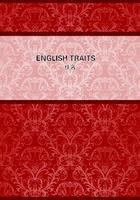
第30章
The english race are reputed morose. I do not know that they have sadder brows than their neighbors of northern climates. They are sad by comparison with the singing and dancing nations: not sadder, but slow and staid, as finding their joys at home. They, too, believe that where there is no enjoyment of life, there can be no vigor and art in speech or thought: that your merry heart goes all the way, your sad one tires in a mile. This trait of gloom has been fixed on them by French travellers, who, from Froissart, Voltaire, Le Sage, Mirabeau, down to the lively journalists of the _feuilletons_, have spent their wit on the solemnity of their neighbors. The French say, gay conversation is unknown in their island. The Englishman finds no relief from reflection, except in reflection. When he wishes for amusement, he goes to work. His hilarity is like an attack of fever. Religion, the theatre, and the reading the books of his country, all feed and increase his natural melancholy. The police does not interfere with public diversions. It thinks itself bound in duty to respect the pleasures and rare gayety of this inconsolable nation; and their well-known courage is entirely attributable to their disgust of life.
I suppose, their gravity of demeanor and their few words have obtained this reputation. As compared with the Americans, I think them cheerful and contented. Young people, in this country, are much more prone to melancholy. The English have a mild aspect, and a ringing cheerful voice. They are large-natured, and not so easily amused as the southerners, and are among them as grown people among children, requiring war, or trade, or engineering, or science, instead of frivolous games. They are proud and private, and, even if disposed to recreation, will avoid an open garden. They sported sadly; _ils s'amusaient tristement, selon la coutume de leur pays_, said Froissart; and, I suppose, never nation built their party-walls so thick, or their garden-fences so high. Meat and wine produce no effect on them: they are just as cold, quiet, and composed, at the end, as at the beginning of dinner.
The reputation of taciturnity they have enjoyed for six or seven hundred years; and a kind of pride in bad public speaking is noted in the House of Commons, as if they were willing to show that they did not live by their tongues, or thought they spoke well enough if they had the tone of gentlemen. In mixed company, they shut their mouths. A Yorkshire mill-owner told me, he had ridden more than once all the way from London to Leeds, in the first-class carriage, with the same persons, and no word exchanged. The club-houses were established to cultivate social habits, and it is rare that more than two eat together, and oftenest one eats alone. Was it then a stroke of humor in the serious Swedenborg, or was it only his pitiless logic, that made him shut up the English souls in a heaven by themselves?
They are contradictorily described as sour, splenetic, and stubborn, -- and as mild, sweet, and sensible. The truth is, they have great range and variety of character. Commerce sends abroad multitudes of different classes. The choleric Welshman, the fervid Scot, the bilious resident in the East or West Indies, are wide of the perfect behavior of the educated and dignified man of family. So is the burly farmer; so is the country 'squire, with his narrow and violent life. In every inn, is the Commercial-Room, in which `travellers,' or bagmen who carry patterns, and solicit orders, for the manufacturers, are wont to be entertained. It easily happens that this class should characterize England to the foreigner, who meets them on the road, and at every public house, whilst the gentry avoid the taverns, or seclude themselves whilst in them.
But these classes are the right English stock, and may fairly show the national qualities, before yet art and education have dealt with them. They are good lovers, good haters, slow but obstinate admirers, and, in all things, very much steeped in their temperament, like men hardly awaked from deep sleep, which they enjoy. Their habits and instincts cleave to nature. They are of the earth, earthy; and of the sea, as the sea-kinds, attached to it for what it yields them, and not from any sentiment. They are full of coarse strength, rude exercise, butcher's meat, and sound sleep; and suspect any poetic insinuation or any hint for the conduct of life which reflects on this animal existence, as if somebody were fumbling at the umbilical cord and might stop their supplies. They doubt a man's sound judgment, if he does not eat with appetite, and shake their heads if he is particularly chaste. Take them as they come, you shall find in the common people a surly indifference, sometimes gruffness and ill temper; and, in minds of more power, magazines of inexhaustible war, challenging "The ruggedest hour that time and spite dare bring To frown upon the enraged Northumberland."They are headstrong believers and defenders of their opinion, and not less resolute in maintaining their whim and perversity.
Hezekiah Woodward wrote a book against the Lord's Prayer. And one can believe that Burton the Anatomist of Melancholy, having predicted from the stars the hour of his death, slipped the knot himself round his own neck, not to falsify his horoscope.